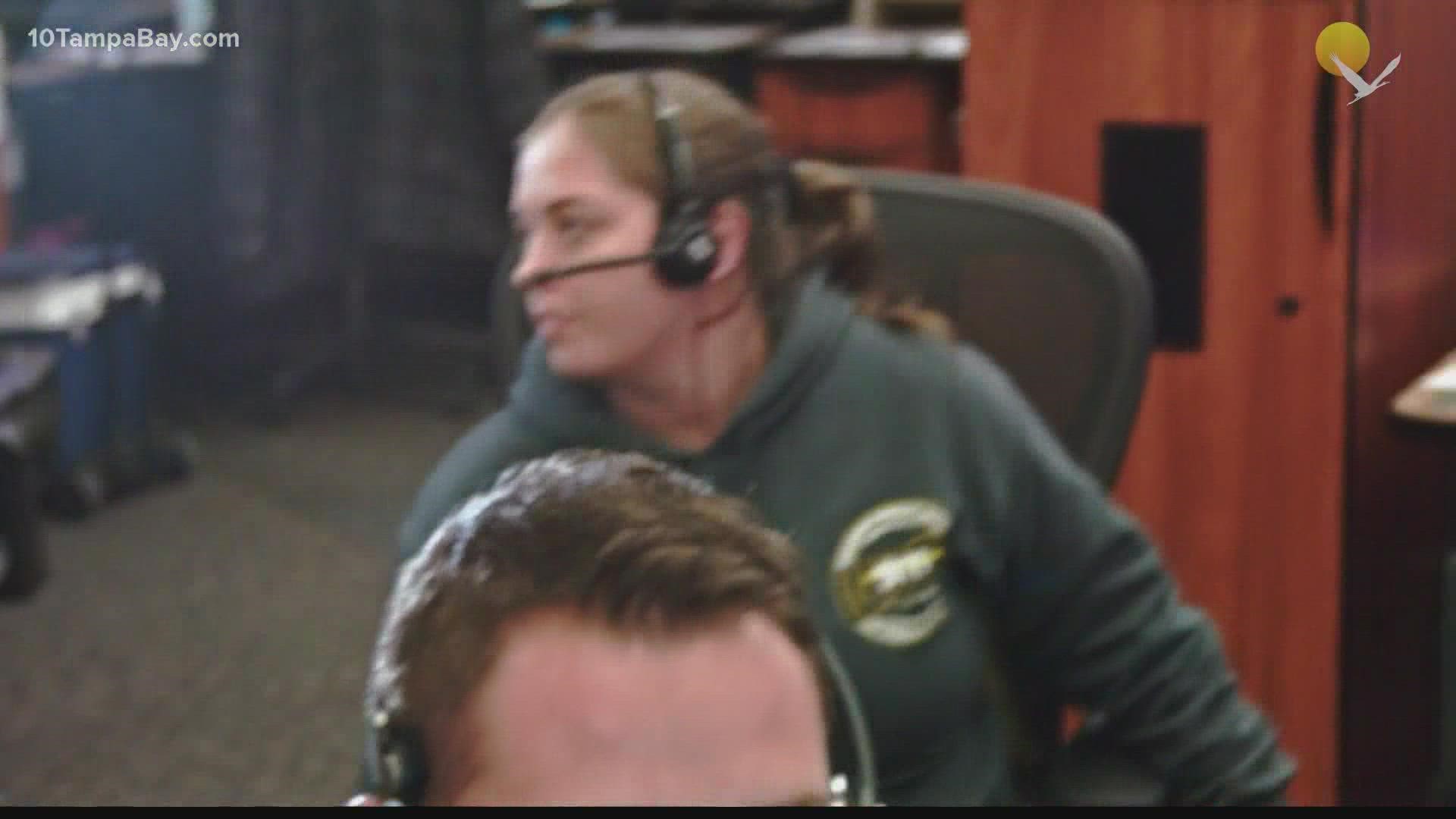HILLSBOROUGH COUNTY, Florida — Across the nation, 911 call centers are dealing with staffing shortages.
According to the National Emergency Number Association (NENA), studies have shown 911 dispatch departments are seeing a 15 to 20 percent rate of staff turnover. There is no national database that tracks dispatched department turnover, according to NENA.
It's an issue seen at local departments just the same. In Pasco County, the EMA director said they're currently hiring for 15 dispatchers. To make matters worse, the number of applicants has dramatically dropped.
"The theory is people getting the extra benefits related to COVID over the last year has impacted us," said Cpt. Dan Olds, the Pasco County Emergency Services Director. "Every two weeks we would get a dump of about 150 applicants from our computer program for the county. Currently, we're getting about 25 [applicants]."
Cpt. Olds said dispatchers are not able to work from home because of the technology and security needed for the job. Working from home has become a format many Americans prefer, adding another challenge in hiring.
When staffing is really spread thin, Pasco County pulls in trained administrators to take 911 calls.
"Some of our administrative people who do quality assurance and hiring working remotely, in order to have them as a reserve in case we do get a lot of people on one shift sick," said Olds.
His department is typically run off of 12-hour shifts. In an attempt to retain current staff, they've modified some of those shifts to shorter time slots.
"So we've come up with a handful of 8-hour shifts for these - mostly parents are the ones who take advantage of it," said Olds.
According to NENA, there are a lot of contributing factors to staff turnover.
1. Low pay and decreasing benefits. The pay for 9-1-1 professionals is often comparable to jobs that are less stressful and have more family-friendly hours, which makes it difficult to retain employees long-term. Also, in the past, many people went to work for government positions because they provided benefits one did not receive in the private sector. Those municipal benefits (retirement benefits, health care, etc.) are being reduced making it less appealing to stay until retirement.
2. High stress and the challenges of working a 24/7/365 schedule. 9-1-1 professionals can work days, afternoons, or nights, along with weekends and holidays, which is difficult on one's home life.
3. Lengthy hiring and training processes.
4. The need for specific skill sets, such as intuition, interpersonal skills, and multitasking.
5. Lack of first responder status. 9-1-1 professionals are often underappreciated. The federal government currently recognizes 9-1-1 professionals as administrative/clerical workers, rather than an essential part of the public safety community. The 9-1-1 Saves Act has been reintroduced in the U.S. Congress by Representative Norma Torres from California - the only congress member that was a former 9-1-1 professional. The bill would reclassify 9-1-1 professionals like first responders and accurately recognize them as an essential part of the public safety community. NENA and its members have long advocated for an accurate statistical classification for 9-1-1 professionals to support critical research into the mental and physical impacts of 9-1-1 jobs.
Hillsborough County is also dealing with short staffing. On top of that, with a growing county population, more 911 calls are coming into the call center.
"It could be stressful at times," said Jacklyn Nelson, a Hillsborough County 911 telecommunicator. "People are usually calling on what could be their worst days but we're there to keep them calm, get them the help they need as quickly as possible."
To make up for a lack of personnel, Hillsborough County dispatchers can sign up for voluntary overtime shifts.
"Our call volume has been increasing regardless of COVID," said Nelson. "Our county is growing and it's been a high call volume."
The Hillsborough County 911 office has worn masks since the start of the pandemic, in compliance with county guidelines. While the masks are needed, it does complicate some of their phone calls.
"Sometimes it is difficult for the caller to understand," said Margaret Hamrick, the Hillsborough County Emergency Dispatch Manager.
Hamrick said the department currently has 12 vacant positions, 5 of which were recently budgeted to account for the county's growing population.
Nationwide, approximately 240 million calls are placed to 911 every year, according to NENA.
If you're interested in applying, you can visit www.MyPasco.net and click on the Job & Volunteer Opportunities link to learn more about Pasco County openings. For dispatcher openings in Hillsborough county, click here.

